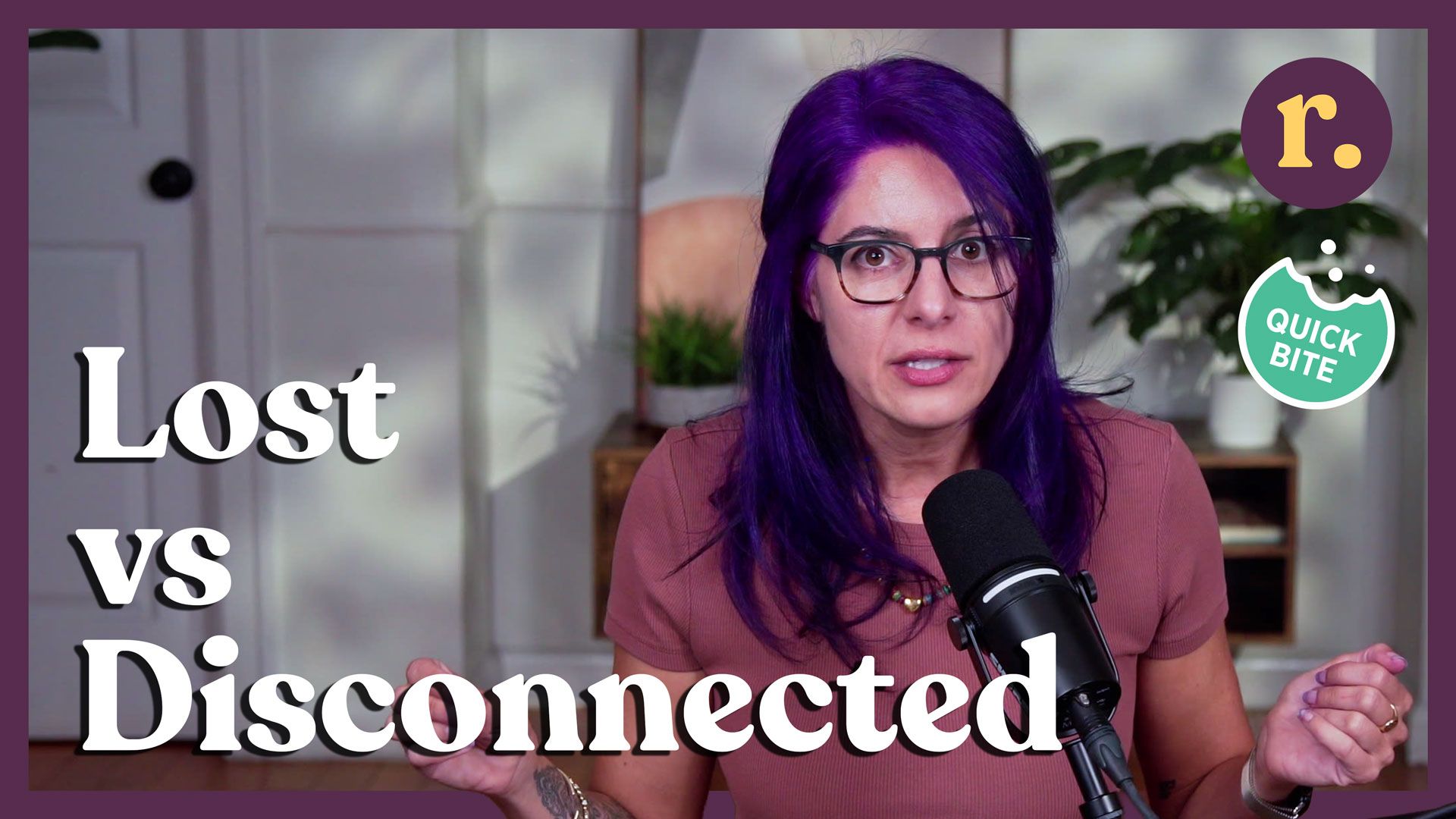Episode 18: “Lost” vs “Disconnected”—Reframe to Reconnect (Quick Bite)
Nov 10, 2025
Do you ever feel like you’ve “lost it” or “fallen off track”? That binary thinking keeps you stuck in shame and self-judgment. In this Quick Bite, Alyssia Sheikh shares a powerful mindfulness reframe—shifting from “I’m lost” to “I’ve disconnected.” Because if you’ve disconnected, you can always reconnect.
Drawing on her own journey with perfectionism and disordered patterns of “on/off” thinking, Alyssia reveals how language shapes our emotions, our motivation, and our capacity to return to presence. Backed by research on cognitive reframing and self-compassion, this short episode reminds you that awareness is always available—no matter how long you’ve been away. Includes a bonus sound-anchored meditation to help you practice coming home to yourself.
✨ In this episode, you’ll learn:
- How “lost” language fuels all-or-nothing thinking and shame
- The simple word swap that creates fluidity and self-compassion
- Why your brain loves binaries (and how to break them)
- The science of cognitive reframing and why language shapes emotion
- A guided practice to help you reconnect right now
💭 Reflection: Where in your life do you say you’re “off track” or “lost”? Try replacing that with “I’ve disconnected.” Notice how your body softens when you do.
Follow & Connect:
- Join the Newsletter
- IG: @alyssiasheikh
- TikTok: @alyssiasheikh
- YouTube: Alyssia Sheikh
- Email me: [email protected]
- Call our hotline and leave a voicemail! (213) 632-9972
- Book a Self-Trust Session with Alyssia
- The Hoffman Institute (Alyssia is a Hoffman Process teacher; podcast is not affiliated)
Links & Resources Mentioned:
- Lindquist, K. A. (2015). The role of language in emotion: Predictions from psychological science. Psychological Science, 26(8), 1254–1266.
→ https://pmc.ncbi.nlm.nih.gov/articles/PMC4396134/
(Reviews evidence that language helps construct emotion—our words shape how we interpret and experience feelings.) - Troy, A. S., Shallcross, A. J., & Mauss, I. B. (2017). Cognitive reappraisal and acceptance: Effects on emotion regulation. Frontiers in Psychology, 8, 283.
→ https://pmc.ncbi.nlm.nih.gov/articles/PMC6188704/
(Shows that reframing thoughts—“cognitive reappraisal”—reduces negative emotion and increases positive emotion, supporting the power of language and mindset shifts.) - Wang, Y. X., et al. (2023). A new understanding of the cognitive reappraisal technique. Frontiers in Behavioral Neuroscience.
→ https://www.frontiersin.org/articles/10.3389/fnbeh.2023.1174585/full
(Explains that reframing builds new neural schemata, making emotional reconnection more accessible and embodied over time.)
Stay connected!
Want mindfulness tools and podcast updates delivered to your inbox? Join the community for practices, stories, and inspiration to keep you grounded.
We hate SPAM. We will never sell your information, for any reason.

